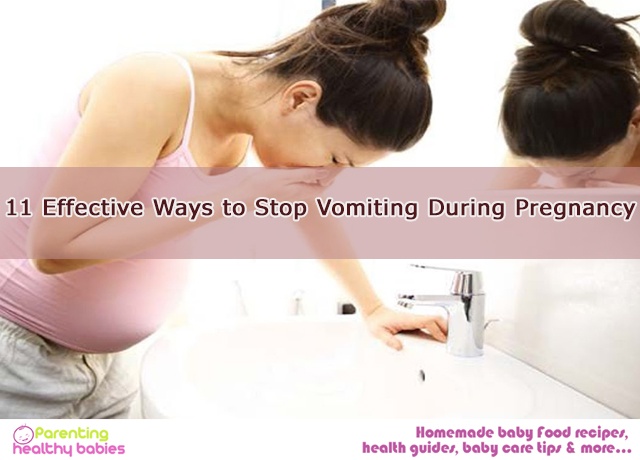As a pregnant woman, it’s natural to be concerned about any discomfort or pain you may experience during the early stages of pregnancy. Uterus pain, also known as round ligament pain, is a common occurrence for many women and can cause discomfort and worry. Understanding the causes and timing of uterus pain can help alleviate concerns and ensure a smoother, more comfortable pregnancy journey. In this article, we will look at the causes and treatment of uterine pain in early pregnancy.
In This Article:
- Uterus Pain
- When Does Uterus Pain Start In Pregnancy?
- What Causes Uterus Pain in Early Pregnancy?
- When to Worry?
- How Do You Treat Uterine Pain in Early Pregnancy?
Uterus Pain
Uterus pain, also known as pelvic pain, in the early stages of pregnancy can be a cause of distress and anxiety for many expectant mothers. While some degree of discomfort can be considered normal due to the body’s natural changes during pregnancy, persistent or severe pain should not be ignored. It is essential for pregnant women to be aware of the potential causes of uterus pain and the available treatment options to address the issue.
When Does Uterus Pain Start In Pregnancy?
Uterus pain typically begins around the first trimester of pregnancy, roughly between 8 and 12 weeks. This is the time when the uterus starts to expand rapidly to accommodate the growing fetus. As the uterus stretches and grows, it causes the ligaments and muscles that support it to stretch and shift as well, leading to feelings of discomfort and mild to moderate pain. This pain can be experienced on one or both sides of the lower abdomen and may feel like a sharp, stabbing sensation or a dull ache.
What Causes Uterus Pain in Early Pregnancy?
There are several potential causes of uterus pain in early pregnancy, ranging from normal physiological changes to more serious complications. Common causes of uterus pain include:
Stretching and Expansion of the Uterus:
As the uterus expands to accommodate the growing foetus, a pregnant woman may experience mild to moderate cramping and discomfort.
Round Ligament Pain:
The round ligaments that support the uterus can stretch and cause sharp, stabbing pains on one or both sides of the lower abdomen.
Miscarriage:
Unfortunately, early pregnancy pain could also be a sign of a miscarriage, especially if it is accompanied by vaginal bleeding.
Ectopic Pregnancy:
In some cases, uterus pain may be a symptom of an ectopic pregnancy, where the fertilised egg implants outside the uterus, usually in the fallopian tube.
Urinary Tract Infections (UTIs):
UTIs can cause pain in the lower abdomen and may be more common during pregnancy.
Moreover, physical activity or sudden movements can exacerbate uterine pain. Activities that require sudden changes in direction, swift movements, or efforts such as standing up quickly can trigger sharp pains as the uterus and ligaments adjust to the body’s motions. It’s important to be mindful of your movements and make slow, deliberate changes in posture or position to minimise discomfort.
It’s crucial to note that while uterus pain is a common occurrence in early pregnancy, it’s always best to consult with your healthcare provider to ensure that the pain you are experiencing is indeed normal and not a sign of a more concerning issue.
When to Worry?
Experiencing some level of uterine discomfort in early pregnancy is normal as the body undergoes significant changes to accommodate the growing fetus. However, there are certain instances when uterine pain may indicate an underlying issue that requires medical attention. It’s important for pregnant women to be aware of red flags that may indicate a more serious issue. If uterine pain is accompanied by heavy bleeding, dizziness, fainting, fever, or severe abdominal pain, it is crucial to seek medical attention without delay. These symptoms could be indicative of an ectopic pregnancy, miscarriage, or other complications that require prompt medical intervention.
Furthermore, persistent uterine pain that does not subside with rest or changes in position should not be ignored. Trusting your instincts and seeking medical advice if something feels off is always the best course of action.
How Do You Treat Uterine Pain in Early Pregnancy?
Fortunately, not all uterine pain in early pregnancy is cause for alarm. There are several measures that can be taken to alleviate mild to moderate discomfort:
Rest:
Proper rest and relaxation can often help ease uterine pain. Taking breaks throughout the day and getting adequate sleep at night can make a significant difference.
Hydration:
Staying well-hydrated is important for overall health during pregnancy. Dehydration can exacerbate uterine pain, so it’s essential to drink plenty of water.
Warm Baths:
Soaking in a warm bath can provide relief from uterine discomfort. However, it’s important to ensure that the water is not too hot, as overheating should be avoided during pregnancy.
Gentle Exercise:
Engaging in gentle exercises such as prenatal yoga or walking can help alleviate uterine pain. It’s important to consult with a healthcare provider before starting any new exercise routine during pregnancy.
Maternity Support Belt:
Some women find relief from uterine pain by using a maternity support belt, which provides gentle support to the abdomen and lower back.
It is crucial to consult with a healthcare provider before trying any home remedies or over-the-counter medications to ensure they are safe during pregnancy.
Conclusion
Uterus pain in early pregnancy is a common concern for many expectant mothers, but it is important to recognise the potential causes and seek appropriate treatment when needed. By staying informed about the possible sources of uterus pain and seeking timely medical attention, pregnant women can ensure the best possible outcomes for both their own health and the health of their developing baby. If you are experiencing uterus pain during early pregnancy, do not hesitate to consult your healthcare provider for personalised guidance and care.
Sources:
- https://www.medicalnewstoday.com/articles/326427#treatments
- https://www.healthline.com/health/pregnancy/uterus-pain-early-pregnancy













